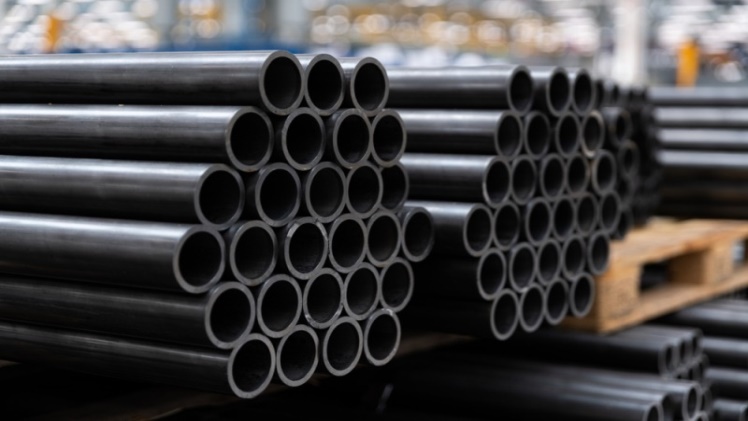Carbon steel pipe is an iron-carbon alloy pipe with a carbon content of 0.0218%~2.11%. Also called carbon steel pipe. Generally also contain a small amount of silicon, manganese, sulfur, phosphorus. Generally, the higher the carbon content in carbon steel pipe, the greater the hardness and the higher the strength, but the lower the plasticity.Compared with other steel types, carbon steel pipes are the earliest to be used, with low cost, wide performance range and the largest consumption.
At present, the output of carbon steel pipes accounts for about 80% of the total output of steel pipes in various countries. It is not only widely used in construction, bridges, railways, vehicles, ships and various machinery manufacturing industries, but also in the modern petrochemical industry. , marine development, etc., have also been widely used.The following are some of the key factors that lead to the widespread use of carbon steel seamless pipes:
1.Strength and Durability: Carbon steel is known for its high tensile strength and excellent durability. It can withstand heavy loads, pressure, and impacts, making it suitable for applications in industries like oil and gas, construction, and infrastructure.
2.Corrosion Resistance: Carbon steel seamless pipes can be manufactured with various protective coatings to enhance their resistance to corrosion. This makes them suitable for transporting liquids and gases in corrosive environments.
3.Seamless Structure: Seamless pipes are formed without any seams or welds, making them stronger and less prone to failure compared to welded pipes. The absence of welds also eliminates the risk of weak points that can be susceptible to corrosion.
4.Precision in Dimension: Seamless pipes can be produced with high precision in terms of diameter, thickness, and roundness. This makes them ideal for critical applications where accuracy and uniformity are essential.
5.High Temperature and Pressure Resistance: Carbon steel seamless pipes can withstand high temperatures and pressure, making them suitable for applications in high-temperature environments like refineries, power plants, and chemical processing industries.
6.Cost-Effectiveness: Carbon steel is relatively affordable compared to other materials, such as stainless steel or alloys, making it a cost-effective option for various applications.
7.Easy Availability: Carbon steel is widely available, and the manufacturing process for seamless pipes is well-established, leading to readily available products in the market.
8.Versatility: Carbon steel seamless pipes come in a wide range of sizes, grades, and specifications, making them suitable for a diverse range of applications in industries like oil and gas, petrochemicals, automotive, and construction.
9.Long Service Life: When properly maintained and used within their specified limits, carbon steel seamless pipes can have a long service life, reducing the need for frequent replacements.
10.Sustainability: Carbon steel is recyclable, which aligns with the growing focus on sustainability and environmental consciousness in various industries.
Overall, the combination of strength, durability, corrosion resistance, and cost-effectiveness makes carbon steel seamless pipes a popular choice for a wide range of industrial applications. However, it is essential to consider specific project requirements and conditions to ensure the correct material selection for optimal performance and longevity.


